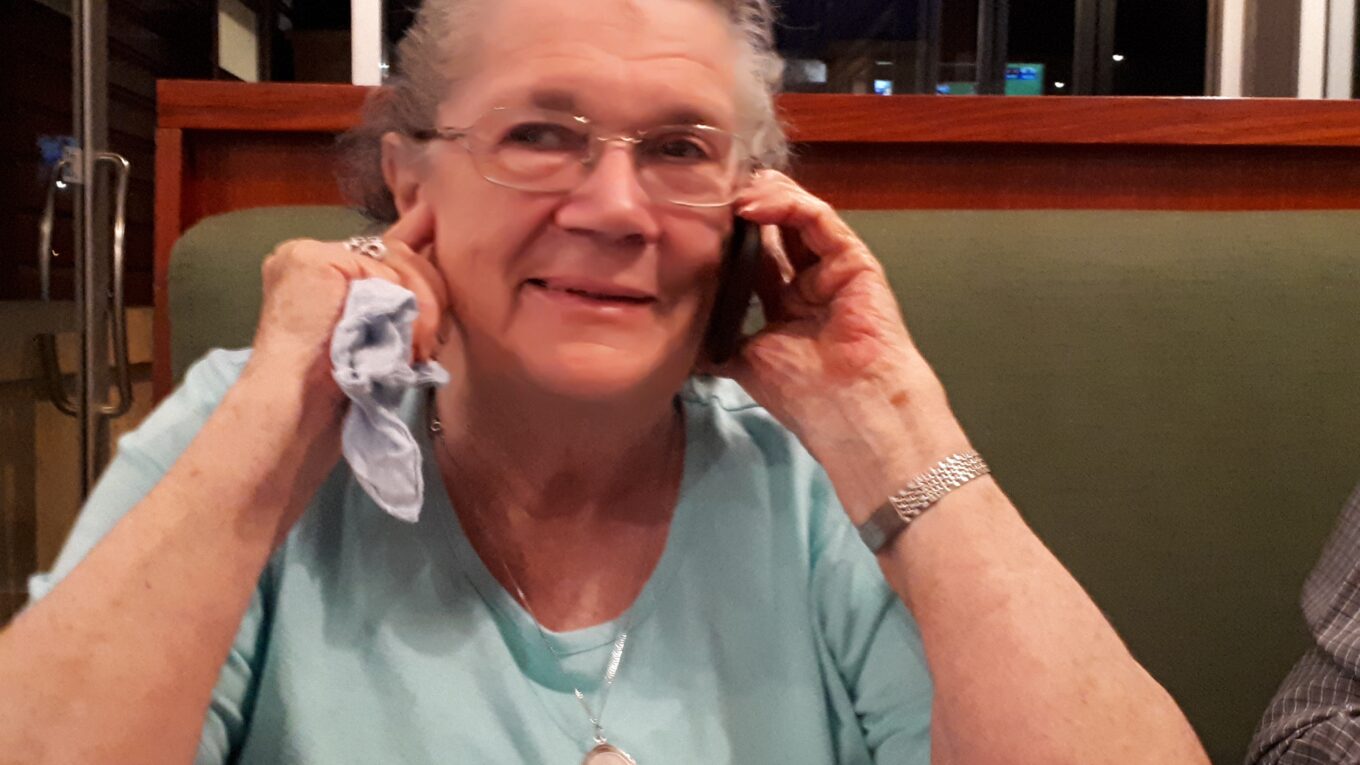A good day
Over the past weeks we’ve been spending a great deal of time with Mil, listening to stories about family members, friends, places and experiences from the past that remain important to her. It’s also brought us up to date on how narrow her world has become and just how much ground she’s lost over the past few years.
Mil tells us that there are now such big blanks in her memory that it’s like looking into the void. It’s sad and awful – but so much worse for her, particularly combined with rapidly failing eyesight and some hearing impairment. She feels lost, she says, helpless and a burden to everyone around her as a result of all this.
My heart aches after conversations like these. We’re left feeling helpless in the face of the inevitability of Alzheimer’s disease and the long, slow goodbye to someone we love. It’s beyond sad to witness someone gradually disappearing before our eyes.
This all-pervasive feeling of sadness led me to the work on grief and grieving done by Dr Elisabeth Kübler-Ross. She documented how, broadly speaking, we process the landscape of loss via a number of emotional stages, starting with denial. This, she said, is often followed by anger, then negotiation or bargaining to try to attain a different outcome or at least some respite. When this fails, depression very often sets in – a period of profound grieving for all that is lost or can’t be achieved. According to Ross, it is only after travelling this terrain in part or whole, that acceptance is likely to emerge.
Like grief, dementia has a number of stages to it, manifesting in different ways from person to person and progressing at different rates. But grief has a direction, the possibility of an end in sight. Dementia, however, is more like a whirlpool that drags the person with the affliction down in ever-diminishing circles. It sucks their understanding and sense of self away step by step, each of the phases incrementally worse than the previous one.
Navigating this landscape is so very much more dreadful than that of other sorts of grief. With dementia, the grieving process never seems to get to the point of acceptance for the person with the disease or, perhaps, for their family. Each realisation of loss brings with it a renewal of the cycle of grieving.
What can family members, friends and other bystanders actually do to help? Dementia Australia suggests planning ahead – but realistically, how can one plan for this? Certainly advance care planning, including ensuring that a will and clear health directive are in place, takes care of practical matters. But how can anyone manage the day to day reality of it all?
We’ve realised that for now, being present, flexible and positive is all we can do. Yesterday was a good day. We all went out for a birthday lunch and we all had a good laugh over something completely random. Seeing Mil happy brightened the day for everyone and made it really clear just how important it is to be as upbeat and to make the most of every positive moment.

